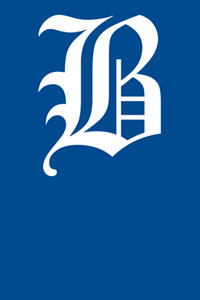
Authorities are wrong to suggest that their revised immigration cards and the plan to exempt Thai nationals from filling them in will address the long queues at overcrowded Thai airports, say industry experts.
The TM6 requirement is irrelevant when it comes to long waits in passport control lines. Rather, the real problem stems from deficiencies in infrastructure, manpower and management, airline and industry experts have said.
With the Immigration Bureau and Airports of Thailand (AoT) having failed to tackle those issues, the public uproar arising from 4-5 hour waits at Don Mueang airport is unlikely to die down.
"The revised TM6 is not at all a solution to the [immigration] queues, nor will doing away with the forms help with queue flows," Louis Moser, chairman of the Airline Operators Committee (AOC), told the Bangkok Post.
"The root cause is that all these airports are overwhelmed with passengers as they are running well beyond capacity," said the executive of an entity that represents more than 80 international airlines operating at Suvarnabhumi airport.
Suvarnabhumi, the gateway airport that handles the bulk of Thailand's air traffic, is an obvious case in point.
It was designed for 45 million passengers a year, but it actually handles 55 million.
Making matters worse is that AoT, which runs the country's six major airports, has allowed passenger inflows to increase while not addressing the capacity issues.
The airport's overall constraints come down to the immigration counters, which are not sufficient to handle the influx of arrivals and departures.
It's a rare sight when all the immigration counters at Suvarnabhumi and Don Mueang are fully manned. The Immigration Bureau, part of the Royal Thai Police, has always claimed to be short of staff.
The frequent breakdowns of the automated screening machines, which are only used by Thai passport holders, also contribute to long queues.
"At any given time, half of those auto-gates at Suvarnabhumi are out of service, and those that are working are not always reliable," said Mr Moser, a veteran airline manager.
The machines are obsolete and are plainly not getting proper maintenance, he said.
Airline executives who spoke to the Bangkok Post on condition of anonymity said they welcomed official initiatives to have more immigration counters at Don Mueang and Suvarnabhumi airports.
But they questioned whether the plans will serve as a sustainable solution if authorities are not serious enough to address the growing problem of more people, especially foreigners, cramming into these airports.
The AOC chairman called on the airport authority to invest in new technology, such as better automated gates, to help relieve overcrowding issues.
Better management of duty officers will also go a long way to easing queue problems and improving the passenger experience.
It's also high time for the bureau and AoT to alert incoming and outgoing travellers that they can only serve a limited number of passengers at a given time and let them have an idea of the expected wait times, Mr Moser said.
